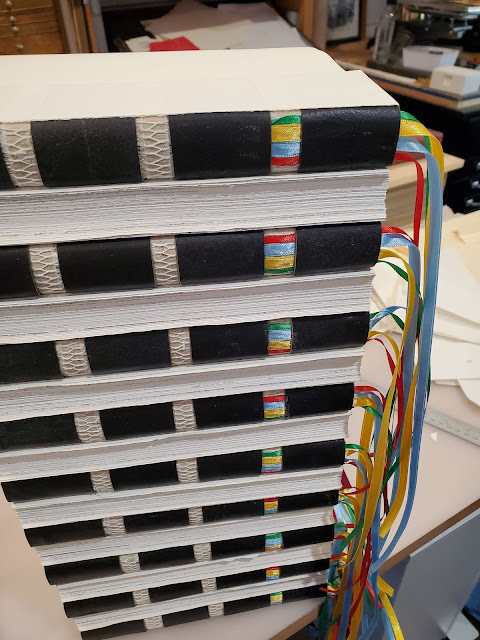Every other week I run 2 games of BXDH - heavy emphasis on exploration. The whole island map is available from the get-go, but "fog of war" covers those hexes that have not been explored.
I like this method - it gives the players something to discuss and aim for without any other input. One group is hell-bent on getting to those northern mountains to look for coffee (quite a valuable commodity) and a lost grimoire that contains all known spells. Another is focused on a combination of dungeon crawling and getting to some small islands the mess up a dragon (hex 2323) and hunt down that dude riding a roc (hex 2130).
The images are built in
worldographer (a fantastic tool!) initially, then I do some image manipulation in another bit of software adding paths and rivers and removing the fog of war. The whole things is then uploaded to roll20 as a background image. I 'reveal' the icons when the images are updated, but the players are entirely in charge of making notes on the map. For example, the lair of lizardfolk in hex 16.23 was named "Den of the Lizard Perverts" by one of the crews. This lets the players connect more strongly with the map and the campaign.
Do I expect the players to explore the entire map? Of course not. Do they need to explore the entire map? Absolutely not. That amount of exploration is from the past year of gaming - about 50 sessions I think. They get up to other things as well. And I use roll20 as a "whiteboard" for players to map the dungeons they explore as well:
zoomed in so you can read their exceptional notes:
Of course I prefer face-to-face gaming, but roll20 works more than well enough for what I need it to do. Also, bonus points to anyone who can identify the dungeon from the strangely accurate player map.
Most of what we use roll20 for are the character sheets ... custom written with tabs and all that jazz, so players can play and then just click a button to get rolls and results:
Starting next month I'm going to focus on a rules update for BXDH. Simplify a few things and tidy a few others. One of the big things I was considering was to tighten up the random advancement tables and simplify the magic stuff.
The spell slots are an interesting resource management system, but frankly it is mad clunky. The key is to take something absurdly powerful and make it easier to use without making it too powerful.
Maybe something as simple as you have Spell Points to memorize spells. A rank 1 spell costs 1, a rank 2 spell costs 2 points, etc. Basically just drop spell slots and keep everything else. it should mechanically work out about the same. gain spell points equal to half your level each time you advance. spell points could also be 'saved' and used to improve grimoire casting chances. still resource management, just less clunky. Also, great opportunity to refer to those points as Mana.
Shields are going to get simplified as well. Choose to block with your shield, Make a Use check. Reduce damage by the check value, drop the shield use die on a 1-2. Much easier.
One thing I am adding for the next game (even before 2024 revision) is a FATE POOL. This works like the existing luck mechanic, except that any player can draw from it. As much as they like. At any time. Every point they draw from though, because a point that I as the DM can use against them later. So it isn't a complete crew job, each point I spend is +1d6 and I have to use it before the roll, no after the fact biz. Along those lines, I need to make a DM roller to do attack and damage rolls on roll20 and show the FATE points being used. I think I'll work on that right after this post in fact!







